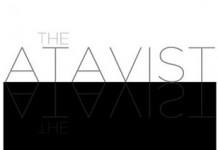 As heralded by a fraught spate of tweets at the beginning of May, esteemed UK/U.S. literary magazine and book imprint Granta has seen a slew of senior exits that reflect the travails of book and periodical publishing in the current fast-changing market.
As heralded by a fraught spate of tweets at the beginning of May, esteemed UK/U.S. literary magazine and book imprint Granta has seen a slew of senior exits that reflect the travails of book and periodical publishing in the current fast-changing market.
Granta magazine editor John Freeman and deputy editor Ellah Allfrey had already left, with the art director and associate editor soon following, and at the end of May, Philip Gwyn Jones, executive publisher at Granta Books and joint founder with philanthropist and benefactress Sigrid Rausing of Portobello Books, the entity that bought Granta in 2006, announced his departure.
First tweets reflected anxiety for those with work due from Granta Books, before it became clear that these were only staffing and organizational changes. “Is there anyone left at Granta?” one publishing insider wondered. Another signalled intent to resign in protest at the developments.
“The economic realities of small imprint publishing today has made it obvious that we need the magazine and books to be a single entity to exploit the synergy between them,” Rausing explained in The Bookseller.
Rausing is a cultivated woman of substance in the best Thyssen-Bornemisza mould, a rare type in England, where the rich are supposed to be stupid, or at least aggressively philistine. Perhaps this partway explains the difficulties that British commentators seem to have with her. “Britain’s grandest literary magazine,” brought back from extinction by an American, is currently owned by a Swede.
Advice and recommendations have been crowding in on her from all sides, but Granta may simply have a structural problem. A typical issue of Granta runs to around 256-264 pages, with many lengthy contributions from leading novelists and essayists whose work cannot come cheap, although Granta magazine and the Granta Books imprint are both readily available via the Kindle Store, including back issues and backlist titles. Much advice and hand-wringing have brought few offers of support, though.
Foundations and public grants—and, during the Cold War, the CIA—usually support such organs. Savings on print costs and wider distribution can only do so much to buttress such a model. All the same, with the recent addition of Granta Portugal and Granta Japan due next year, the magazine has a global circulation of around 100,000 and a plainly marketable franchise. How far can digital dynamics go towards keeping such a platform afloat? Obviously, the function of patron, unlike publisher or agent, has not yet been disintermediated out of existence.
Declining, Granta made no comment.































